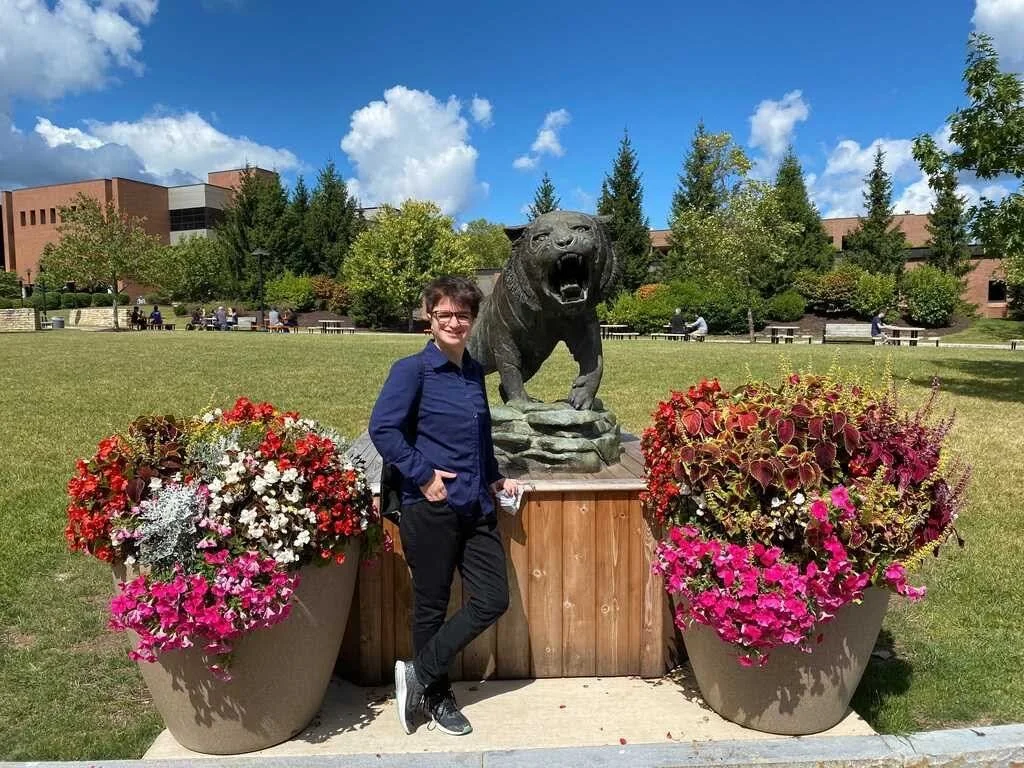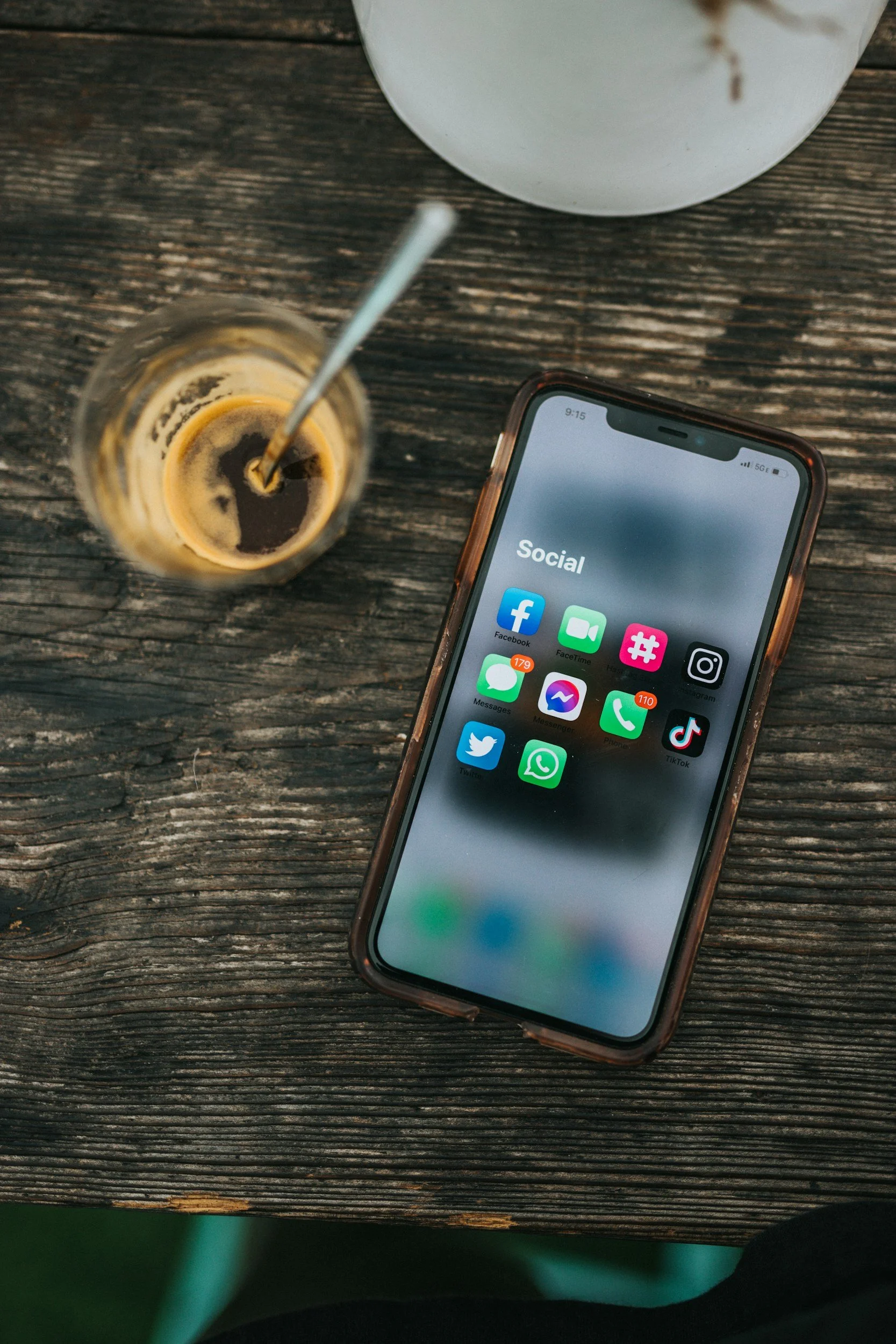By Anna Nack
How did I get here, standing on one of the country’s most secretive stages? I looked into the audience with hundreds of eyes focused on me and more eyes originating from video screens flashing worldwide. I became part of Central Intelligence Agency history, the youngest person to ever-present in the “Bubble,” the CIA’s famous conference room.
As the sound tech was attaching a microphone to me, through my hearing aids I “heard” my heartbeats as they raced a million miles a minute as sweat slid down the back of my neck. Trying to control my breath, I thought back to what brought me here from a tiny town in Armenia. Not only was I an orphan but as an infant I could neither hear nor speak. My little grunts and gestures were how I attempted to communicate with visitors to the orphanage looking to adopt.
I was born with Nager syndrome. It is a rare genetic disorder that includes conductive hearing loss, which delays speech development and affects the structure of a face. I had many of the symptoms, including a cleft lip, nearly nonexistent ears, and fused inner ear bones. Hearing loss occurs when a part of an ear is not working correctly when a sound vibrates the outer and the inner ear. My hearing loss is a bilateral, moderate to severe conductive hearing loss.
Once adopted at the age of 6, I started getting the necessary treatments to address my symptoms. Ultimately, I had 12 surgeries to help me physically “blend in,” but the social obstacles were much more complicated and set me back. Besides having a stunted (British) English vocabulary and only knowing British Sign Language (from a short while spent in the U.K.), I had to learn a second language: American English and American Sign Language. This all hampered my communication with other children, teachers, and family. It took seven years of speech therapy to overcome anxiety and improve social situations.
Sassy Britches
My parents always say that in the first photo they saw of me, I was leaning into the camera, almost daring the orphanage facilitator to capture my image. I became “Sassy Britches” at that moment. My parents offered a whole new world to me, and I held on with both hands. I used technology that let me hear for the first time, managed to learn both British and American Sign Language (ASL), and experienced many fitful days of speech therapy, all necessary for me to be me. After many tears, failures, and successes, I finally learned to communicate and actively listen five years later. (Though my mother still says that I need to work on the latter!)
Now standing on this stage, as the CIA’s deputy chief operating officer introduced me, my nerves melted. All of the preparation, tears, and anger of not fitting in came together, and it was at that moment I decided to lean in and enjoy the ride. The topic was the superpowers that CIA officers possess—science, technology, engineering, and math, plus teamwork, empathy, and failure—and my superpower, a BAHA device, a bone-anchored hearing aid.
The BAHA is my equivalent to Batman’s utility belt and provides me with the tools and confidence to conquer most obstacles. I explained to the audience how my hearing aids and the people in my life inspire me to stand up and take charge of my life. The first time I got hearing aids, the sounds were exciting but overwhelming, and they were far from perfect. But for the first time in my life, I could hear—maybe not like others, but for me, it opened my eyes, mind, and heart to the possibility of enriching my life.
The BAHA’s continually improve—for example they now feature Bluetooth, which makes my life easier because it allows me to have a “normal” conversation with someone on the phone call without turning the speaker on or having cables interconnected and wrapped around me. It literally helps me find my voice and the strength to persevere. Afterward, several adults and children with disabilities told me what it meant to see someone like me—a deaf, orphaned girl—rock her future.
I Refuse to Quit
Perseverance helped me face social challenges, like the day I earned my way into an honors science class and met a brick wall of teenage know-it-alls advising me that “this class” was no place for a deaf girl. They thought I was a pity play. Keeping my chin up and my nerves down, I used it all to motivate and drive me to succeed. I never won those kids over, but if they could see me now presenting at the CIA! Being deaf does not make me less but makes me more. It empowers me. I hope to inspire others and motivate young people with disabilities to step out of their comfort zone.
Whenever I face challenges, I tell myself, “I’ve made it so far! I refuse to quit. I’m a deaf orphan from Armenia who will be a biomedical engineer. I have a voice. I will succeed!” In that honors science class, I was excited to learn and start toward my lifelong goal of becoming a biomedical engineer. In a team setting, I learned to take more calculated risks in design, use my voice, and recognize that we may all communicate differently. And I realized that for a team to be successful, everyone needs to bring their best self forward and strengthen their camaraderie with teammates.
Today, I am very proud to say that I feel comfortable with public speaking, even on uncomfortable subjects. As one of my first deaf/hard of hearing (D/HoH) teachers, Mr. Simich was a beacon. Deaf himself, he became my mentor who taught me how to be kind and forgiving to those who did not understand the Deaf community. His lessons have spilled over into other areas of my life, such as my first job at JoAnn Fabrics, where I had to educate management on using assistive listening devices and allow them to hire others with disabilities. I became a tutor and advocate for students and adults learning ASL.
Now as I start college, I am excited to work with mentors and professors who can guide me on my biomedical engineer journey. This world needs more diverse engineers who bring fresh perspectives to technical obstacles. I want to enhance those within the D/HoH community who desire better support, equipment, and aides to enhance their lives. My future dream is to work with international teams who bring their different cultural perspectives to spark innovation to underdeveloped countries.
Virginia resident Anna Nack started her first year of college at the Rochester Institute of Technology this month. This essay is adapted from her winning entry that earned one of this year’s Help America Hear scholarships. See her fellow winner Callie Welty’s essay here.
The application for the next round of scholarships for high school seniors just opened! Entries are due April 2, 2023. Get details here.







These findings suggest that the ability to integrate what is seen with what is heard becomes increasingly important with age, especially for cochlear implant users.